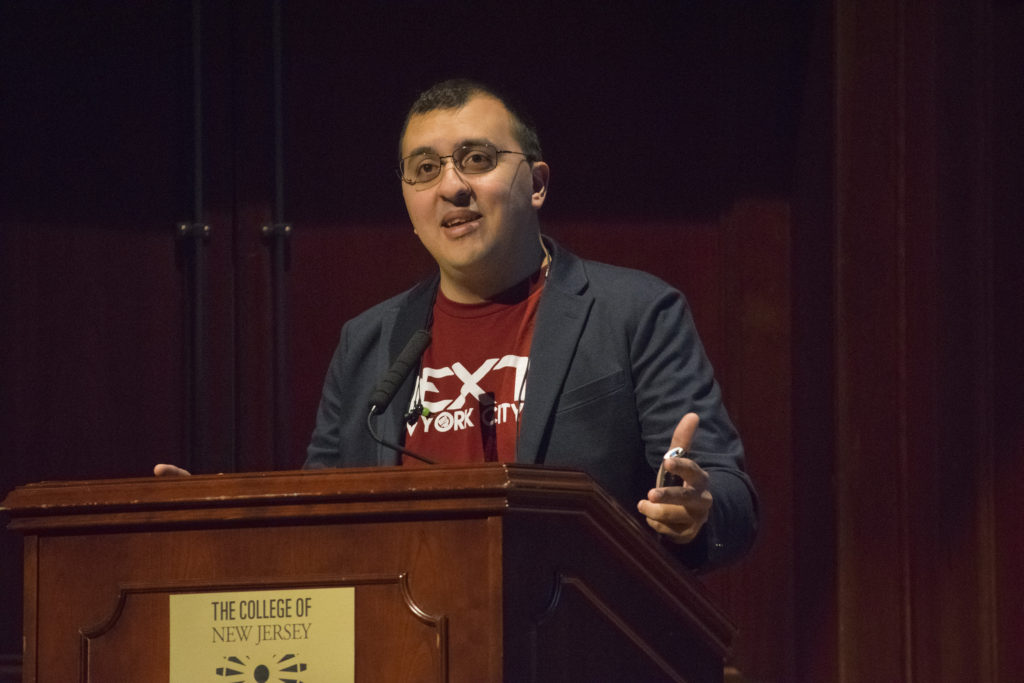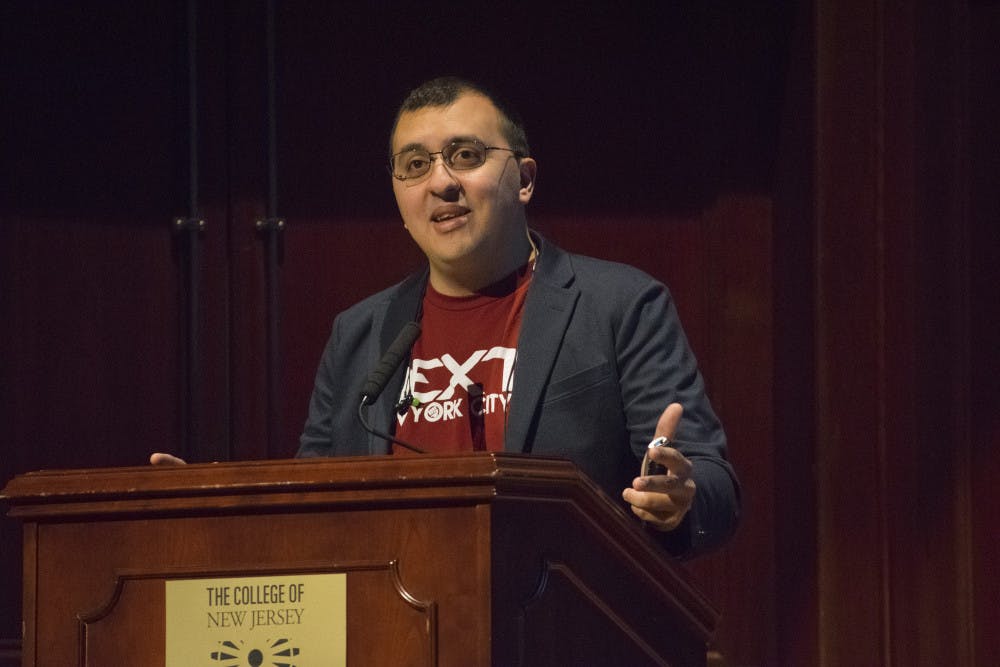By Samantha Roberts
Staff Writer
If you choose a job you love, you will never have to work a day in your life: an age-old adage alumnus Esteban Martinez (’11) challenged in his Brown Bag lecture entitled “From Dreams to Films” on Friday, March 3, in Mayo Concert Hall.
Martinez, a documentary filmmaker, discussed the process of turning one’s dreams into a reality.
“You will only work harder” when you reach your dreams, he said. “You will want to do more."

Martinez first realized this when he left his job with the Philadelphia Eagles as a front end web developer to pursue his dreams as a filmmaker, a transition that came with several sacrifices, he said.
“Even though I worked for the Philadelphia Eagles, which is great on paper, it wasn’t what I wanted to do,” Martinez said. “I knew that my passion was video.”
Martinez set goals for himself, made the transition and is now a videographer who’s done competitive fighting game coverage for companies like Red Bull, Bandai Namco and ESPN. His first big project, however, was a film of his own: “FGC: Rise of the Fighting Game Community,” in which he documented the culture of competitive fighting games like Capcom’s “Street Fighter.”
According to Martinez, the transition from web development to video did come at a cost.
“I didn’t have a social life for two years,” he said. “I spent most of my days at my computer with (the editing software Adobe) Premiere open.
“There were steps I took to balance things out,” he said. “Like choosing what and how to sacrifice in order to stay sane and keep myself on deadline.”
Martinez said everyone will have different priorities, and it’s up to the individual to find the balance that’s right for them.
One ambition Martinez set for himself was to “get a documentary out as soon as possible while also maintaining quality, telling a story and being well done,” he said.
“FGC: Rise of the Fighting Game Community” was a culmination of all these goals.
Another goal of Martinez’s was to make his projects digestible and easily understood, even to those outside of the gaming community. He joked that although his grandmother hadn’t yet seen the film, she was his goal, as someone that had no familiarity with these kinds of gaming competitions.
Andrea Palermo, a senior elementary education and iSTEM double major, believed Martinez’s clips did their job.
“As someone who is not involved in gaming, I can still say that I received and understood his message,” Palmero said after seeing a portion of the film. “The film was very well done and professional.”
Martinez also hoped to have a seamless transition in turning his visions into reality, however, this was and is not always the case in the creative processes.
Martinez discussed having his camera break mid-filming and having his mics go out during production. While these were setbacks, quick thinking led Esteban to improvise, something he says is crucial in filmmaking or any similar pursuit.
When Martinez covered the Capcom Cup 2016 “Street Fighter 5” tournament for ESPN, these adaptation skills were put to the test yet again. Martinez needed to mold his shooting style to the needs of his client. He was also filming in a dark arena and was asked to provide an abundance of crowd footage, so he dedicated much more of his time than usual finding the best crowd shots possible.
Martinez said he faced great pressure working with a crew he’d just met and knowing his footage would air on ESPN2 the next day. Still, he rose to the occasion.
Martinez took questions from the audience and ended with what he believed was the key to his success.
“If you want to do something, then do it,” he said. “If you’re not motivated by yourself, no one will be able to push you. You’ve gotta be the one to start the car.”







